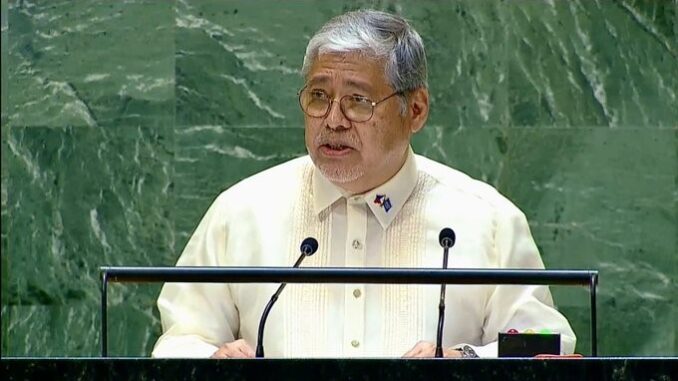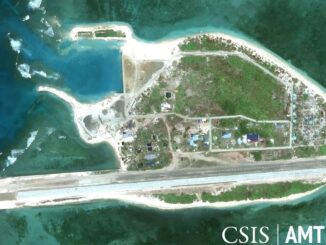
The Philippines is now seeking support for its bid for a non-permanent seat in the United Nations Security Council (UNSC), and is calling for reforms to make the council’s membership larger to boost transparency and accountability.
Speaking at the United Nations General Assembly, Secretary of Foreign Affairs Enrique Manalo campaigned for a seat at the UNSC for the 2027 to 2028 term, as he cited the Philippines’ history with the United Nations.
“As the first Asian Republic and a founding member of the United Nations, our diplomacy has consistently pursued peace, the sovereign equality of states, the rights and dignity of all persons,” he said.
“The Philippines is a trusted partner, innovative pathfinder and committed peacemaker. We bring experience, depth, and steadfastness in working with the international community to address common global challenges,” he added.
Manalo last week said several countries have already committed their support for the Philippines, but many territories have yet to make a formal decision. The country will be competing against Kyrgyzstan for the seat.
The UNSC is primarily responsible for the maintenance of international peace and security. It has 15 members, including five permanent members with veto power — China, France, Russia, the United Kingdom, and the United States of America.
The Philippines is vying to be one of the 10 non-permanent members, five of which are elected each year by the General Assembly for a two-year term.
Manalo also called for the reform of the Security Council, and the revitalization of the General Assembly.
“Security Council reform should be a package consisting of the enlargement of its membership and improvement of its working methods, in order to create greater transparency and accountability of the Council to the general membership of the UN,” he said.
“Transforming the international financial architecture is also imperative if we are to realize just and inclusive growth worldwide,” he added.
Manalo also cited the importance of adherence to international law to keeping the Indo-Pacific region “free and open,” reiterating calls for an amicable resolution of disputes in the South China Sea. —RF, GMA Integrated News





Be the first to comment